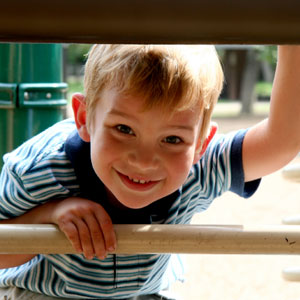Insights from Irine Schweitzer, Psy.D, LCSW
School-age children can be divided into three separate age groups: 5 – 7, 8 – 10, and 11 – 12. Each of those age groups perceives themselves and the world around them in a unique way.
Ages 5 to 7: “The World is My Oyster”
 Children ages 5 – 7 are in a stage of the development summed up as “The World is My Oyster.” This stage plays a very powerful part in the child’s life.
Children ages 5 – 7 are in a stage of the development summed up as “The World is My Oyster.” This stage plays a very powerful part in the child’s life.
During this stage children:
- Generate a great deal of creativity
- Develop boldness and an ability to dream
- Feel that all things seem possible
- Carry a deep sense of wonder and curiosity about the world
By the end of this stage they are going to be able to:
- Do much of their own self care with little support, including calming down, dressing, washing, brushing teeth
- Enjoy and feel secure in all kinds of relationships
- Assert their own will with peers
- Ssurvive not getting their own way with parents or peers
- Allow worries, fears and shyness coexist with grand expectations
Ages 8 to 10: “The World is Other Kids”
Children ages 8 – 10 are in a stage of the development summed up as “The World is Other Kids.” At this stage, children begin to move away from the family-oriented stage of development into the rough-and- tumble world of peer relationships. They enter the world of playground politics.
During this stage children:
- Focus on mastering skills they already learned such as throwing, catching, writing script, and drawing figures
- Define themselves more in terms of the way they fit in with the peer group
- Rank themselves in everything, from athletics to looks to brains, against their peers
- Develop strong reasoning skills from being in a group
By the end of this stage, they are going to be able to:
- Use parents as “coaches,” to help sort out complex peer relationships
- Compete with and also be close to siblings
- Learn to share being boss, depending on context
- Continue to enjoy fantasy
- Experience disappointment without withdrawing or becoming aggressive or disorganized
Ages 11 to 12: “The World is Inside Me”
Children ages 11 – 12 are in a stage of the development summed up as “The World is Inside Me.” After years of being dependent on what others think about them, children at this stage develop an inner picture of themselves. From interactions with family, friends, teachers and others, they develop their own set of internal values, and begin to think about the future .
Children in this stage:
- Can hold on to two realities at once: peer group reality and their emerging inner reality
- Have a strong sense of themselves
- Show increased interest in role models and stronger ties to self sex parent
- Are on the cusp of puberty, show shyness around opposite sex
- Are caught between childhood longings and the desire to grow up
By the end of this stage, children are going to be able to:
- Define self by one’s own ongoing characteristics, such as smart, strong, nice, etc.
- Organize and carry out routine assignments on one’s own
- Participate in a peer group, but be less dependent on it
- Understand and empathize with others’ feelings
- Use rules flexibly by understanding context
- Have a sense of one’s own sexuality
Resources for Parenting a School-Age Child
I would like to recommend some websites, books and organizations that I found to be very helpful. Feel free to let me know if you also found them helpful and if you know of any others.
Organizations
NutritionWise. (818) 304-1876. Nicole Meadow, MPN, RD director.
This is an organization run by registered dietitians who are dedicated to helping children and families with issues stemming from eating difficulties such as allergies, overweight, diabetes, feeding disorders, celiac disease and much more.
Therapy in Action. (818) 708-2292. TherapyinAction.com
Therapy In Action is a multidisciplinary therapy center for children, adolescents and their families. Their staff consists of Registered Occupational Therapists and Licensed Physical Therapists. They have a great touch with kids, and a terrific facility.
CHADD ( Children and Adults with Attention Deficit Disorder). www.chadd.org
CHADD is the nation’s leading non-profit organization serving individuals with AD/HD and their families. CHADD has over 16,000 members in 200 local chapters throughout the U.S. Chapters offer support for individuals, parents, teachers, professionals, and others. They are the place to go to find local chapters, conferences, articles, books and referrals.
Guys Group for boys in middle school. (818) 983-7728. Facilitated by Kent Toussaint, MFT.
The group helps boys develop new social skills, make better choices and become more self confident. It is hard to find a group just for boys and this group does a great job creating a positive, therapeutic environment conducive to growing and learning.
Websites
www.babaganews.com is an innovative, educational web site for Jewish middle school students and teachers. It offers games, puzzles, crafts, recipes, e-cards and more. It is very creative, fun for the kids and educational.
Books
How to Talk So Kids Will Listen & Listen So Kids Will Talk, by Adele Faber and Elaine Mazlish. A fabulous book, written by therapists, who give the parents the words they need to talk to their kids.
Playground Politics, by Stanley I. Greenspan, MD. This book is an excellent introduction to understanding the emotional life of your school-age child.
Contact Irine Today